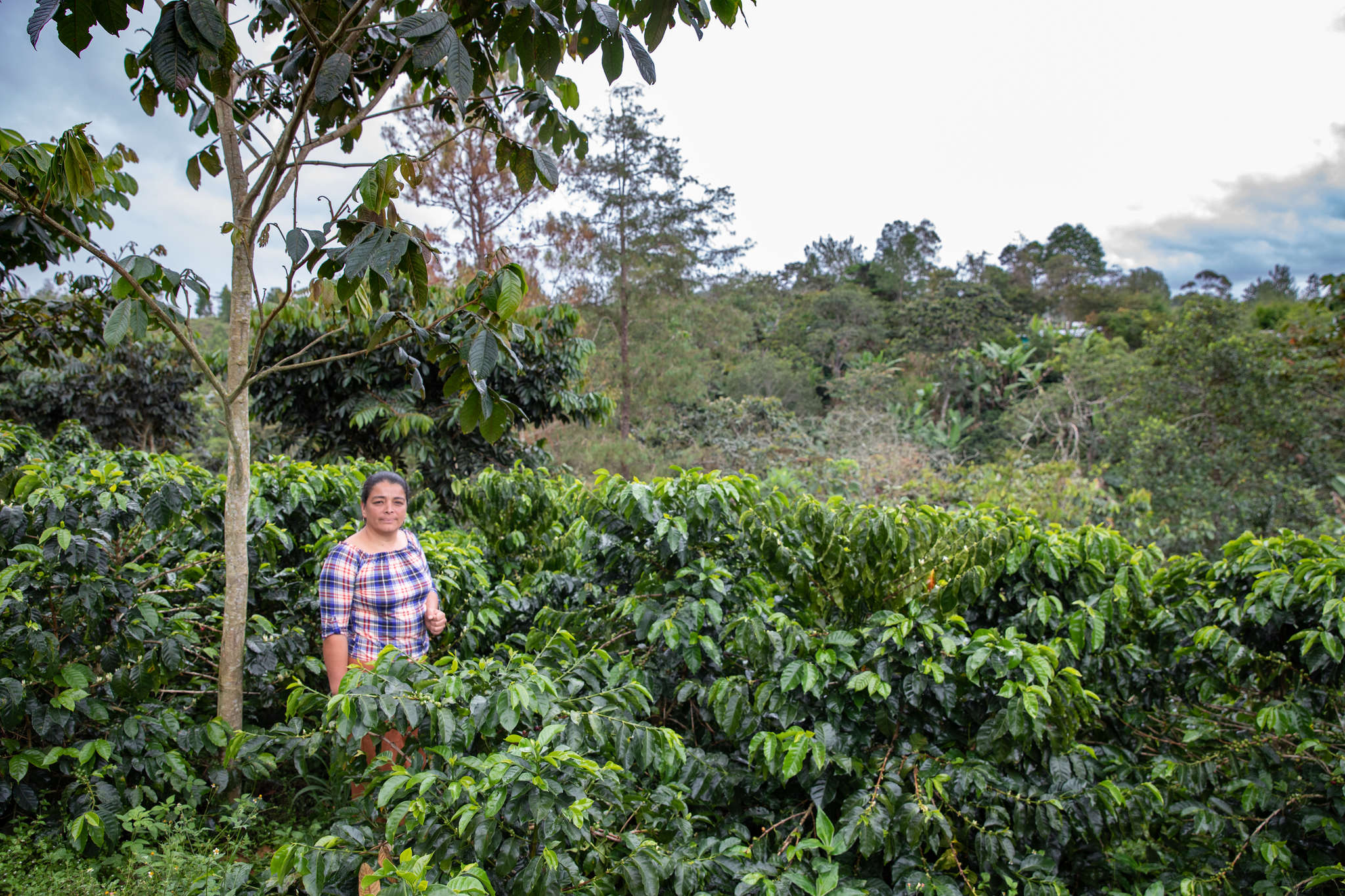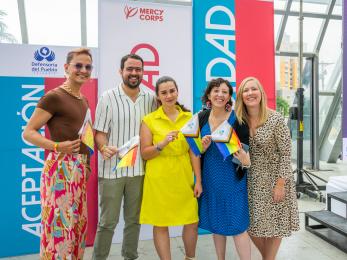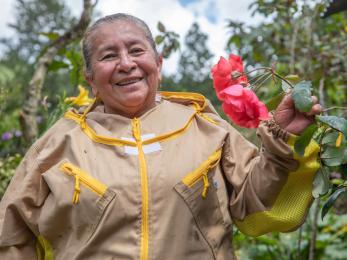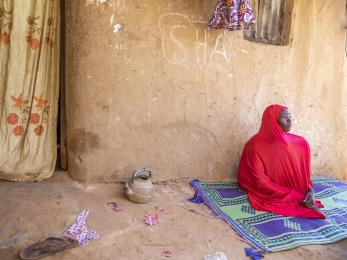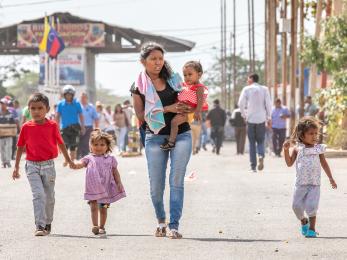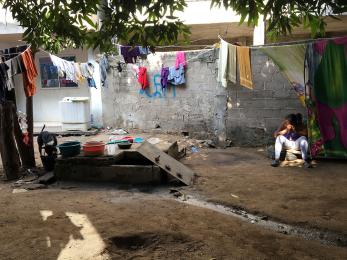Breadcrumb
Colombia
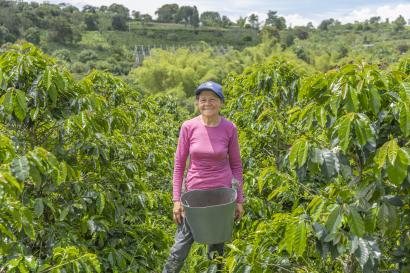
Mercy Corps has worked in Colombia since 2005, helping communities grow stronger and more resilient. In 2024, our initiatives reached over 148,000 people across the country.
The context
While Colombia has taken major steps to reducing poverty, it remains structurally unequal with limited access to basic services, particularly in rural areas affected by armed conflict and climate change events such as floods and landslides. Over 30% of the population does not have enough income to cover their basic needs like food and housing, making it more difficult to find stable employment.
For two decades, Colombia’s productivity has remained stagnant, making it difficult to create more sustainable livelihood opportunities for communities, especially in rural areas where communities rely on agriculture for their livelihoods. Nearly 15% of people work in agriculture, making it the country’s second-biggest source of employment. With few alternatives and limited support, farmers in certain rural regions turn to illicit coca cultivation, now covering an estimated 253,000 hectares of farmland. Growing coca crops fuels the illegal drug trade, drives deforestation, and exposes rural communities to violence and exploitation.
Clashes persist despite progress with engaging with some armed groups, who are often linked to the illicit coca economy and territorial control. Conflict affects more than 9 million civilians—with over 7 million people who have been internally displaced. Additionally, Colombia remains a key host and transit point for migrants, sheltering nearly 2.8 million Venezuelans refugees and migrants. Colombia has become the third-largest host country for refugees worldwide, according the UNHCR.
Our impact
Through partnerships with local governments and organizations, Mercy Corps supports communities as they build economically secure and more peaceful futures. Our programs make an impact across these areas:
Strengthening livelihood opportunities for rural communities
Mercy Corps works in some of the regions of Colombia with the highest concentration of coca cultivation. Since 2018, we have supported more than 3,200 farmers to replace their coca crops with legal crops such as coffee, cacao, yucca, plantains, and raising livestock. Mercy Corps provided technical training and delivered supplies to help farmers harvest and commercialize their crops, supporting farmers in replacing more than 2,000 hectares of illicit crops.
Our comprehensive approach includes assisting farmers to obtain land titles, which opens opportunities for financial services that help with improving production. This inclusive strategy has ensured that less than 5% of farmers we supported have returned to growing coca, a powerful example of what’s possible with this kind of initiative.
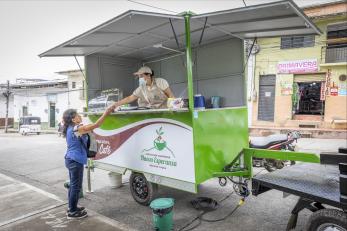
In Cauca, one of Colombia’s top coffee-producing regions, where coffee accounts for 70% of the agricultural sector, we partner with a local cooperative to support rural growers. Our program supports farmers in establishing associations to improve their capacity and access to more profitable markets.
Promoting peaceful solutions for all communities
While Mercy Corps’ approach to helping farmers move away from illicit crops contributes to less conflict, it is part of a larger strategy to peacebuilding in Colombia. In collaboration with local governments, more than 1,400 families receive official titles for their property. Many people in rural communities have owned and lived on their land for decades without ever receiving documentation, making it difficult to take out loans, and increasing the risk of a legal battle or violent dispute if someone were to claim the land as their own. Alongside helping farmers navigate the costly process of securing land titles, Mercy Corps provided grants for equipment and supplies to boost their income.
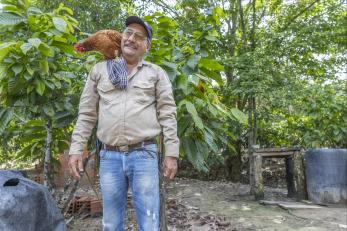
In Nariño, the border region between Colombia and Ecuador, we have supported the increase in women's participation and influence in local development. By providing training in gender equity and governance, women have developed skills to engage and advocate in local decision-making processes. More than 1,000 women participated in the first school of its kind in this region, where they completed a one-year training program studying topics such as transformative leadership, gender equality, community participation, prevention of gender-based violence, and received improved access to drinking water. Women's increased involvement makes the peacebuilding process more inclusive, equitable, and effective.
Supporting communities who have been displaced
In collaboration with other non-governmental organizations, we have delivered humanitarian assistance to over 514,000 people since 2019. We provide emergency assistance to Venezuelans refugees and migrants; and Colombian returnees and host communities to cover their basic needs like food, shelter and other essentials.
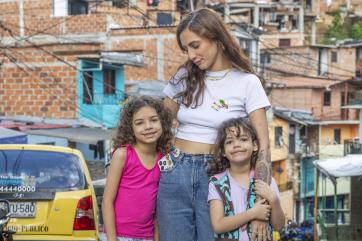
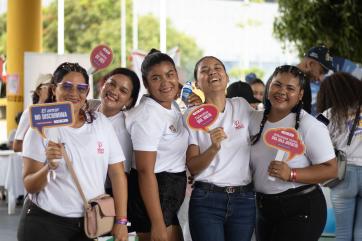
We presented orientations to over 3,000 refugees to establish their stay in Colombia and provided access to essential healthcare services, including physical examinations, mental and emotional well-being, medication and specialized medical services. Over 1,000 participants from LGTBIQ+ communities received support to learn about their rights.
More than 32,000 people received training in vocational skills to gain employment or launch a small business. We have supported 4,000 Venezuelan refugees entering the job market and assisted in the recruitment of 2,000 people to local companies. More than 9,000 participants have received mentorship and training to gain more access to employment opportunities, with 60% of participants reporting an increase in income and an increase in savings in 40% of cases. Our programs support communities to become less reliant on aid as they rebuild their lives in Colombia.
